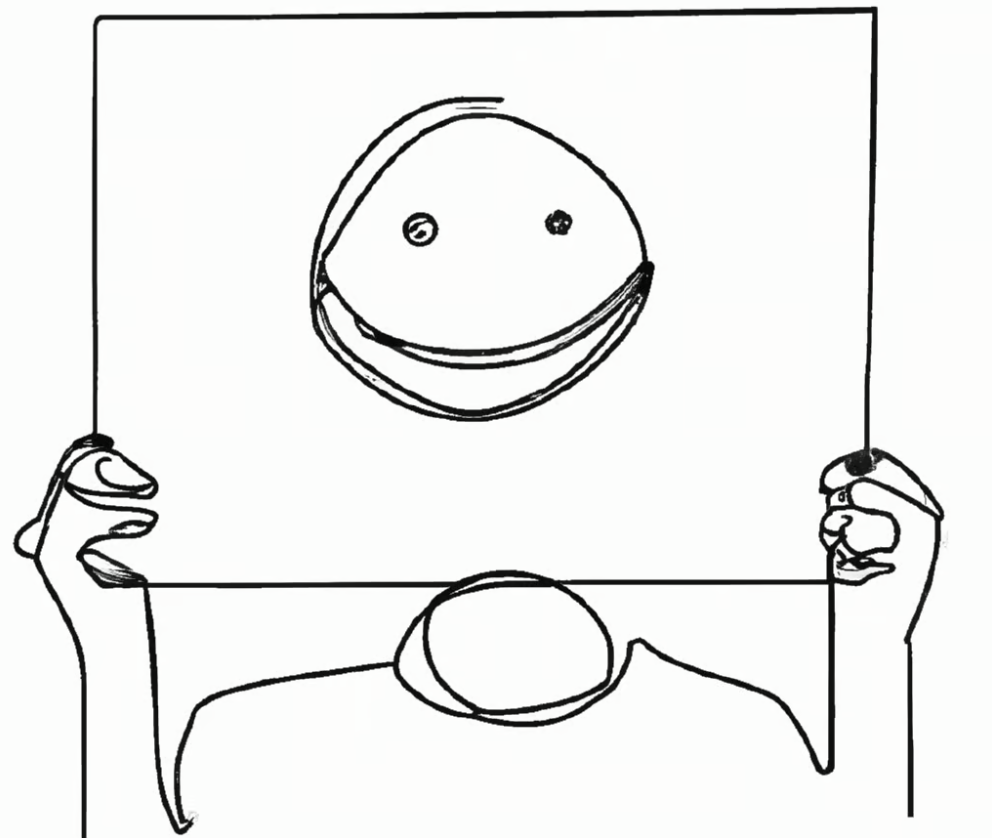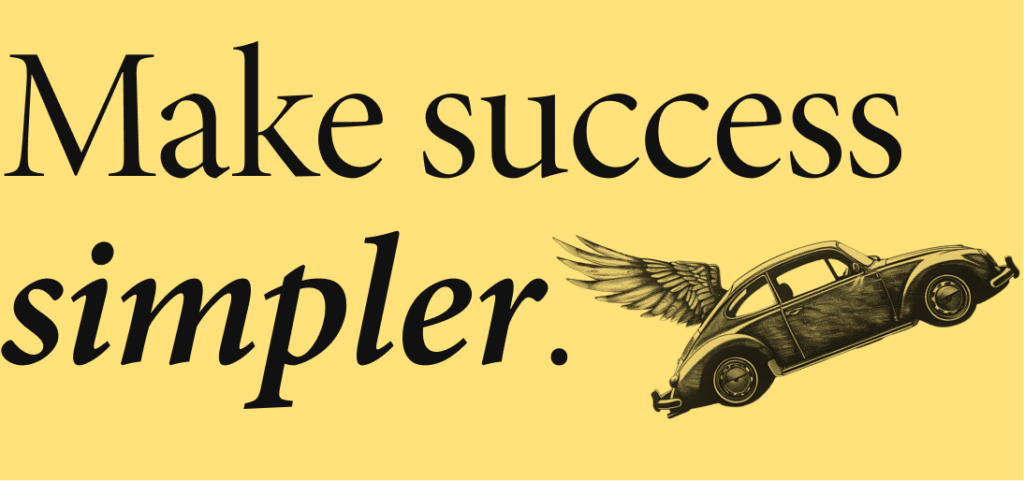Welcome to One Thing Better. Each week, the editor in chief of Entrepreneur magazine (that’s me) shares one way to be happier and more effective at work — and build a career or company you love.
Today’s one thing: Being what someone expects.
That one thing, better: Undercutting what someone expects.

Someone expects the worst of you.
They have a stereotype based on your work. If you’re young and entry-level, they might think you’re entitled and lazy. If you’re the boss, they might think you’re self-important and intimidating.
If you’re in sales, they might think you’re fake and pushy. If you’re a creative, they might think you’re impractical. If you’re the editor in chief of a national magazine, they might think you’re arrogant. (Uhh, that last one is personal. More on it later.)
Either way, this sucks. Stereotypes prevent us from interacting as humans, and from seeing — and gaining! — the value we have for each other.
But they can also be used to your advantage — because if you know the negative thing that people expect of you, then you can surprise them by doing the opposite.
And when you do that, you have full control.
Today, I’ll show you how — and I’ll start with a celebrity and a hostage negotiator who challenged my worst expectations of them…
A tale of two Chips.
A few years ago, I set up an interview with home-renovation star Chip Gaines. He and his wife Joanna rose to fame with their show Fixer Upper, and have since spun out many other companies and projects.

Chip was 11 minutes late to the interview — which is not a big deal to me.
I mean, I interview a lot of celebrities. I’ve come to expect lateness. An NBA star once made me sit by the phone for five hours. I’ve had celebrities be days late to an interview.
So, Chip arrived 11 minutes late. That’s early in celebrity time. And after saying hello, totally unprompted, he told me this:
I’m a big believer in time, and how we’ve only got so many hours in a day. And I think about this a lot — about back when I was broke and couldn’t pay the bills, I had a certain amount of hours in the day. Slightly further up the food chain, where we currently are now, and I still have those same exact amount of hours.
And you look at Bill Gates or Warren Buffet or Jeff Bezos or Elon Musk — I mean, whoever. They have those same exact hours in the day.
So I apologize that I’ve stolen a few of your minutes. Of course, tack whatever we had committed to previously onto the end of this. We don’t want you to feel short-changed for my lack of punctuality here.
Nobody has ever said anything like that to me. Ever. That’s when I knew Chip was special, and understood why millions of people love him.
We ended up talking for double the time we’d planned, and stayed in touch after.
It got me thinking about another, less-famous Chip I’d interviewed — a former FBI hostage negotiator named Chip Massey.

When we got on the phone, I was instantly struck by Chip Massey’s warmth. I expected an FBI guy to be gruff and straight-talking, but Chip was friendly and jokey.
So I told him, “You don’t sound like an FBI guy!” And he said:
Well, that’s the job. At the FBI, it’s all about ‘How can I get the information that I need from somebody who might be reticent to talk?’ So bonding and rapport-building is huge. That’s what we maximized in hostage negotiations.
I liked him instantly. We also stayed in touch.
Consider these stories.
Two Chips. Both aware of the expectations that follow them. Both actively doing the opposite.
Celebrities can be self-important. Chip Gaines knows that, and levels the field immediately.
FBI agents can be tough and cold. Chip Massey knows that, and warms the room immediately.
By being aware of expectations and then undercutting them, both Chips draw people closer to them. They make people think: Wait, are my assumptions wrong? I need to learn more.
When you make someone think that, you are in control. You have their full attention. You can shape what happens next.
So…
How to undercut their expectations.
Maybe you’re not a celebrity or an FBI negotiator. Doesn’t matter.
Like I said above, your work will fall under some kind of stereotype — that you’re lazy, attention-seeking, entitled, overly ambitious, self-important, hard to please, self-serious, whatever.
I bet you know how this applies to you. Now let’s undercut it.
Here’s how: Find your “positive opposite”.
This is an idea I first encountered in a very different context: parenting.
Years ago, my wife and I signed up for a kind of parenting therapy called PCIT, or Parent-Child Interaction Therapy. Our son was having serious tantrums, and a friend suggested this as a solution.
It’s a weird experience. You learn a hyper-specific procedure for how to play with your kid. One part is called “praising the positive opposite.” Basically, you look for opportunities to praise your kid for doing the right thing — instead of catching them doing the wrong thing.
If your kid is destructive, then praise them whenever they’re gentle. “I love how careful you’re being,” you might say. If your kid has trouble listening, then praise them whenever they follow instructions. “You’re a terrific listener,” you might say.
After months of this with my son, I realized that adults can do it too — with themselves!
If you know the negative thing people think of you — and especially if, deep down, maybe there’s some truth to it — then it’s helpful to think: What’s the positive opposite of this?
If you’re in sales, what’s the positive opposite of being in sales mode? It’s to focus on human connection, not transaction.
If you’re the boss, what’s the positive opposite of being intimidating? It’s to become more nurturing and mentoring.
Once you’re thinking about this, you can start to lead with it — to make the positive opposite the very first thing people experience about you.
And when you do that, you’ll undercut people’s negative expectations.
That’s what the two Chips did. And that’s when the real relationship can begin.
How this impacts me (and you)
Last week, I got coffee with an accomplished entrepreneur. “You’re not what I expect from an editor in chief,” she told me. “There’s a template for an editor in chief — snooty, arrogant, only friends with CEOs.”
There it is — the expectation.
I hear it a lot. I’ve heard it for years. I’ve come to expect it. So I consciously subvert it.
My style of writing, my presence on social media, my way of engaging with people — this is not an accident. It’s intentional. I want to distance myself from people’s expectations by being accessible, honest, vulnerable, and supportive.
It works incredibly well. I’ve made many friends this way. I’ve gotten work this way.
Maybe this sounds like I’m being fake, or that I’m suggesting you be fake.
I am not. I’m being intentional, and I’m suggesting that you be intentional too. There’s a difference.
You and I have bad days, or hard moments, or raw instincts. We both draw from a large human palate of emotions and actions — and if we’re not careful, that stuff can spill out of us indiscriminately.
But we have a choice — to be careless about how we act towards others, or to be intentional.
When we’re aware of the worst that people might expect from us, we create a guide for how to surprise them. Then delight them. Then draw them closer to us and build real bonds.
The more you make this choice, the more consistent you become. The more it feels natural. The more it stops feeling like a choice at all.
That’s how to do one thing better.
